
John Calipari's preseason Q&A stepped outside of basketball for a moment when he was asked about athletes using their platform to make political and social statements, which is a very hot topic in America right now.
Calipari, who has coached and mentored several of basketball's most prominent athletes, did not shy away from the question; in fact, he spoke at length about how he decides when to speak up and what he tells his players about doing the same.
Read it all here:
You’ve always advocated your guys being involved in the community, especially after they leave here. What do you think about athletes using their platform politically and for social causes and those kind of things?
“I had a meeting with the team. I think I did this a year ago. And then I had it again with this group. If there is something happening in the world or around you that you want to make a statement about and you want to be a part of; thoroughly, first of all, educate yourself, thoroughly know what they stand for. Do you stand for everything they stand for? If you don’t, don’t get involved. If you do, that’s the first step. Do you agree with what they’re asking? Because most cases they want you in the front of the line. Why do they want you in the front of the line? Because you bring attention to their cause. If their cause is your cause and you’ve been thorough about it, that’s the first step.
“The second step would be, ‘If I get involved will it make a difference?’ And, ‘Tell me the downside.’ So the downside may be you lose your job, you lose your this, you lose your family --. is it worth that? If it is, go for it. But you better know the downside of it. But you thoroughly have to educate yourself on what the cause is. It’s not just, ‘Well, this cause may be overarching.’ And I told them, ‘There are times you’ve got to make a stand.’ We talked to them about the police and how to handle yourself if you get pulled over, this, that and the other.
“I’ve been in the company of — there was Bruiser Flint when I was at UMass where we’d be in a store and I’d go one way, and he’d go the other way, and there’d be two people following him, watching him. No one watched me. I’ve been in a car where I’m on the passenger side sitting back, he’s driving and it’s two in the morning, we get pulled over. ‘Where you going? What are you doing? Which road did you take? Which road did you take? Why were you there? What were you doing? Did you take this road or did you take the other road?’ Until I sit up and, ‘Sir, did we do something? Is there something here?’ I’ve been on an airplane where we’re in first class and they come over to me, ‘Hey sir, would you like something to drink?’ And then they go to Bruiser, and what do they said to him? ‘Can I see your ticket?’ Can you see his ticket? You know me: ‘Why didn't you ask me for my ticket? Why are you asking him for his ticket?’
“So, I tell these guys, just because you have a Kentucky uniform you don’t feel all this stuff. It’s there, okay. So, the cause becomes if you thoroughly research it and you feel the same, if you think you can make a difference. If you don’t, getting involved for what reason? If you know you can make a decision, what’s the downside of this? What could happen to this? So, I’m not telling them not to. I’m just telling them the approach if they were to get involved.”
Having seen some of those things that you just described and seeing some of the things that unfold around our country lately, is it difficult for you not to speak out yourself?
“If I think there’s something I need to jump in with, I would. I would have no problem. You know, what I just did, I spoke my mind and told you how I felt and this is what I see. But, you know, again, I’m an adult who would look at what I just said. Is it worth it? Would I make a difference or am I just doing it to do it? Am I going to make a difference and if I want to make a difference what’s the downside? Tell me where this goes.
“But for them, they’re 18, 19. If they don’t think it through and they do something it could wreck them the rest of their life. You don’t want that. If they feel so strongly, they know they can make a difference and then not worry, they know what the downside is, the worst thing that can happen and ‘I’m willing to deal with that,’ then they’ve got to do what they think they socially, their social conscious. I wouldn’t go crazy on them. I’d ask them though, ‘Talk to me, tell me why.’”
How much do you help educate them in that process? There’s so much on the internet, how do you separate fact from fiction?
“I would tell you that it’s hard to try to do the education myself because there may be a bias there. I want them to know, ‘Educate yourself.’ There’s all kind of ways now. This isn’t 30 years ago. You can press a button and get information. You can go (talks into phone), ‘Could you give me information?’ And then come right back to you. So they can get it, but I would probably — I’ve told them, ‘If you’re going to do something come to me first, tell me why, we’ll talk it through and then you go do your thing.’ That’s my approach. It’s kind of like a kid wanting to leave here or stay. ‘Tell me why you’re leaving. Really? Did you think this thing through? Who is talking to you?’ Or you’re staying. ‘Wait a minute, tell me why you’re staying.’ Then you sit there and you go, ‘You know what, you’ve got good reasons. Let’s go for this.’
“Look, in one year many of these kids — if not two years — they’re leaving me and going to a man’s world. I can’t have them do stuff because it makes me look good or bad. ‘You can’t do it, I’ll look like…’ What? It’s nothing to do with me. This is about a young, 17, 18, 19 year old making decisions, which in a year and a half, two years, he’s going to have to make. Now how do you help him make decisions? The stuff we talk about girls. I’m pretty blunt. I mean, you can’t — if you hit a girl you should get punched in the face. You don’t hit. What? And if you have an issue with a girl and it’s in front of a judge -- Men, a 6-7 black man and a 5-2 white girl, you’re going to jail. You are going to jail. You’re not winning. I don’t care what you said. Unless something is on camera, you’re going to jail. There are neighborhoods where — I was in Memphis. There are some tough neighborhoods where men and women blend. They’re the same. She smacks you, you smack her.
“But my job is to help them develop habits. One of those habits may be, when I’m approached with something, how do I logically go through this and think about it? Business deals, money. I talk to them about money before they leave. If it’s too good to be true, it is. If it’s too good to be true, it is. If someone is going to make you 80 percent on your money just give them the money, say, ‘Just take it.’ I mean, there’s stuff — 80 percent is you’re either selling drugs, you’re stealing or you’re an actor. I mean, I don’t know what to tell you. Short of that, you’re a grinder like the rest of us. Hit a bunch of bunts and singles and hit a bunch of those. It's all what we try to do here. And then basketball on top of it, we better win games.”
 John Calipari's preseason Q&A stepped outside of basketball for a moment when he was asked about athletes using their platform to make political and social statements, which is a very hot topic in America right now.
Calipari, who has coached and mentored several of basketball's most prominent athletes, did not shy away from the question; in fact, he spoke at length about how he decides when to speak up and what he tells his players about doing the same.
Read it all here:
John Calipari's preseason Q&A stepped outside of basketball for a moment when he was asked about athletes using their platform to make political and social statements, which is a very hot topic in America right now.
Calipari, who has coached and mentored several of basketball's most prominent athletes, did not shy away from the question; in fact, he spoke at length about how he decides when to speak up and what he tells his players about doing the same.
Read it all here:

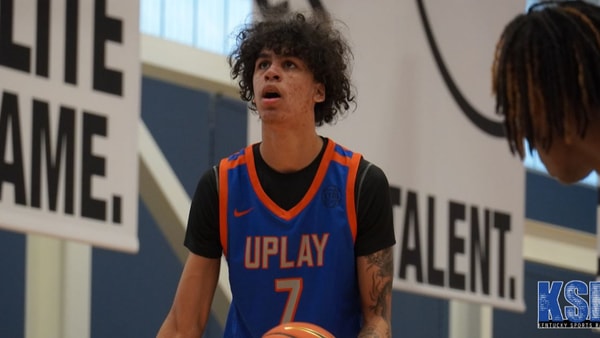
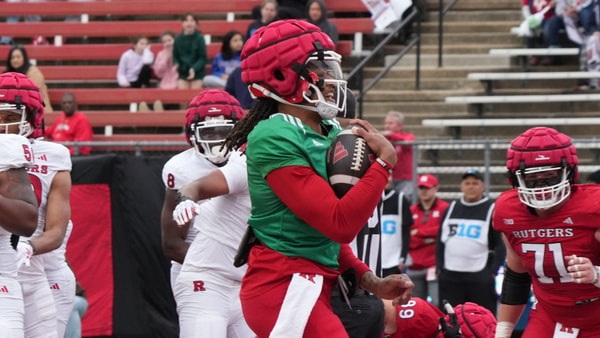
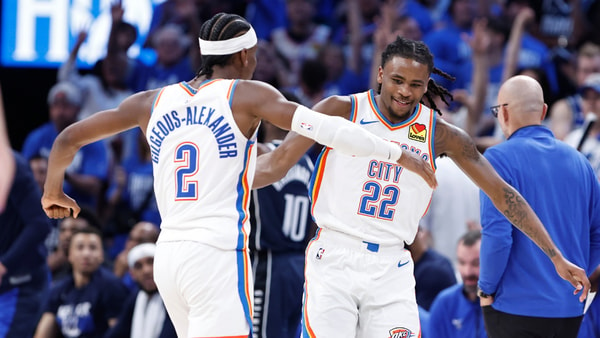

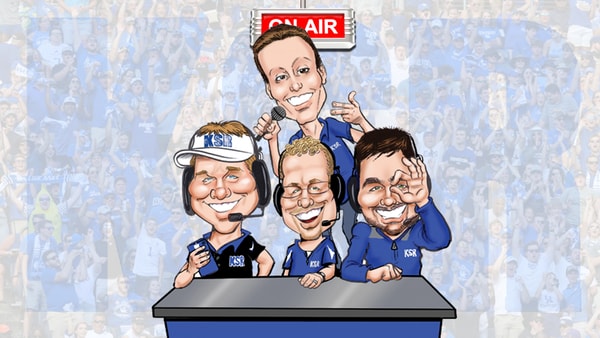
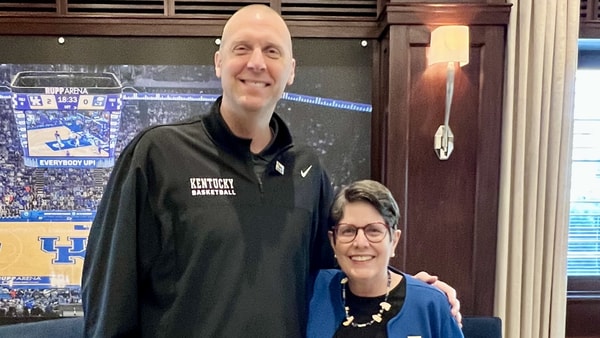

Discuss This Article
Comments have moved.
Join the conversation and talk about this article and all things Kentucky Sports in the new KSR Message Board.
KSBoard